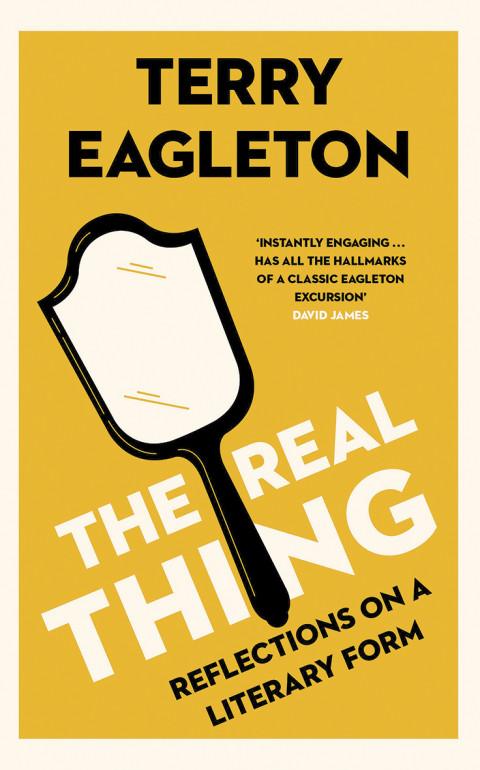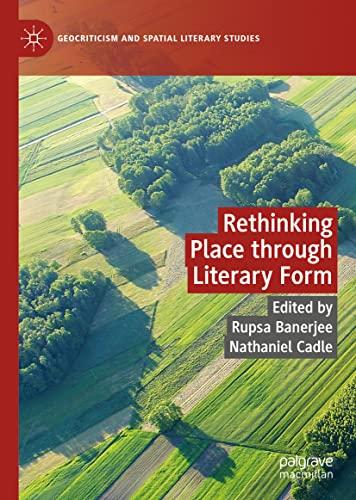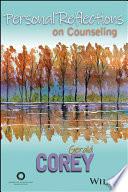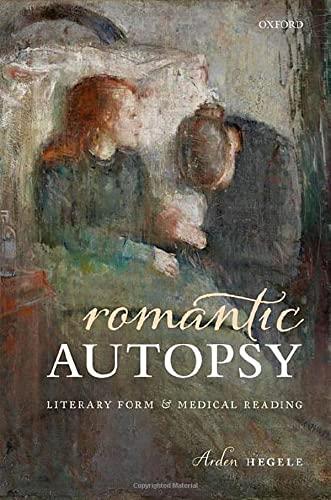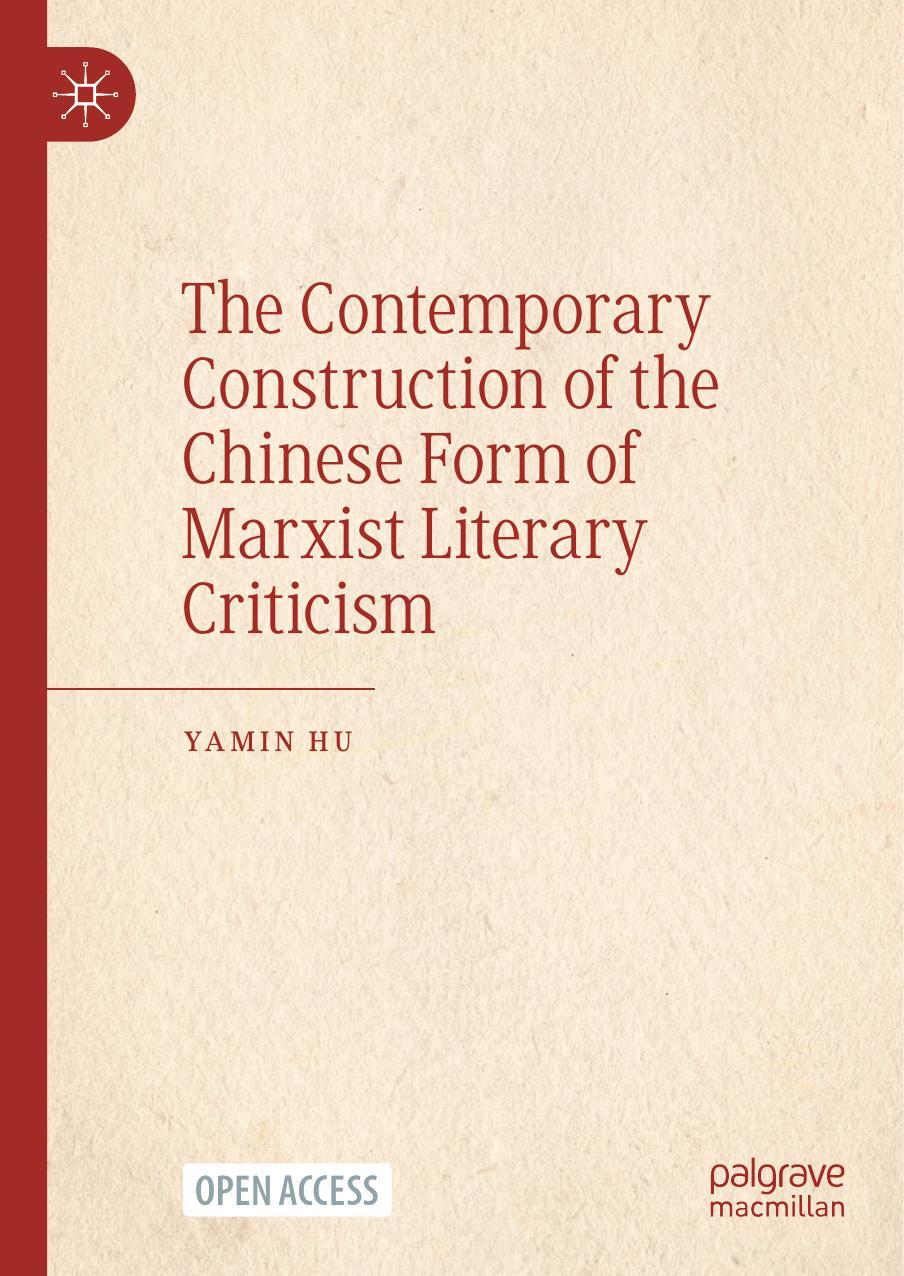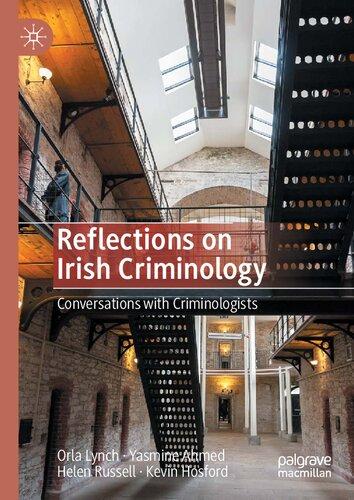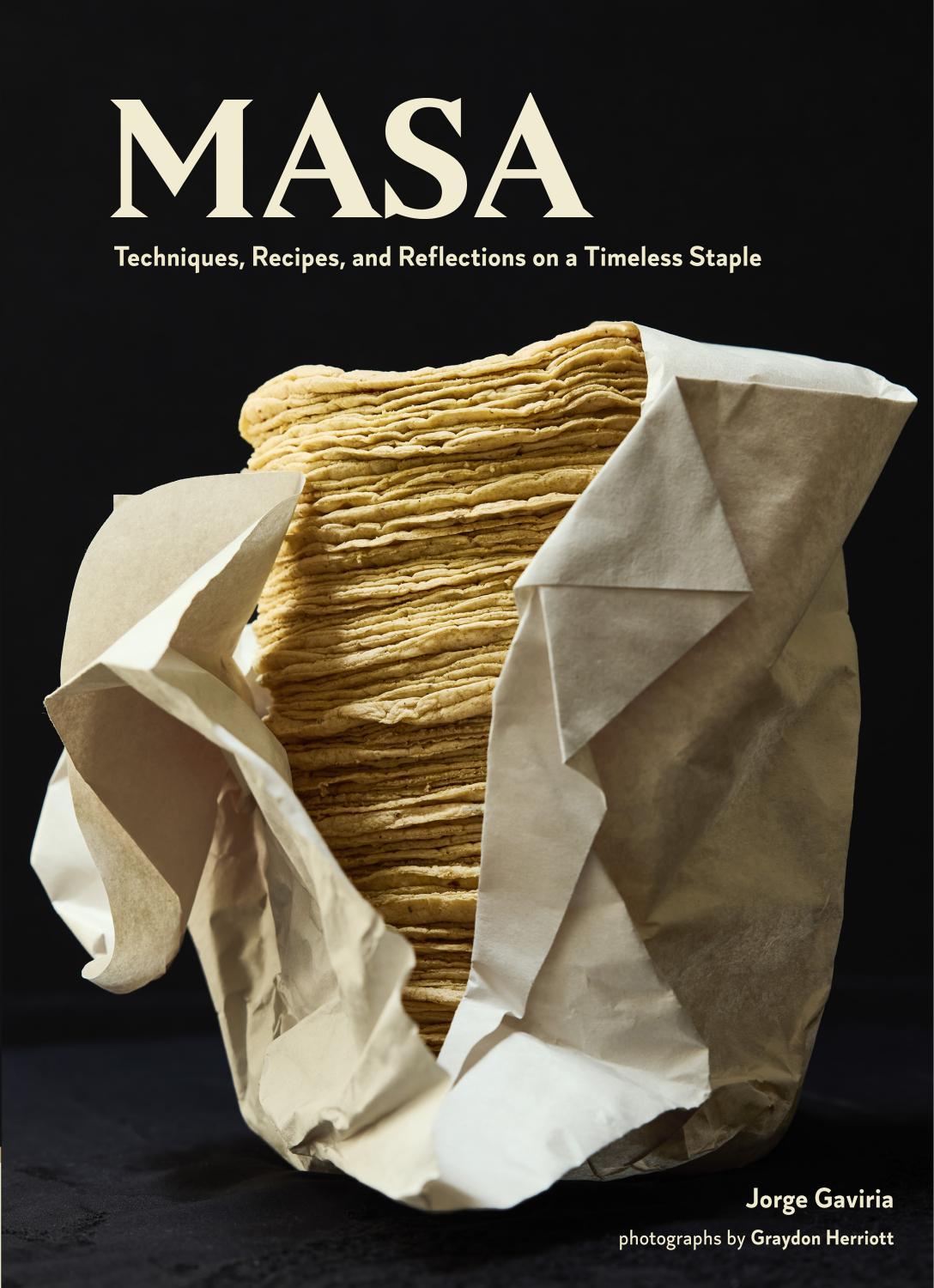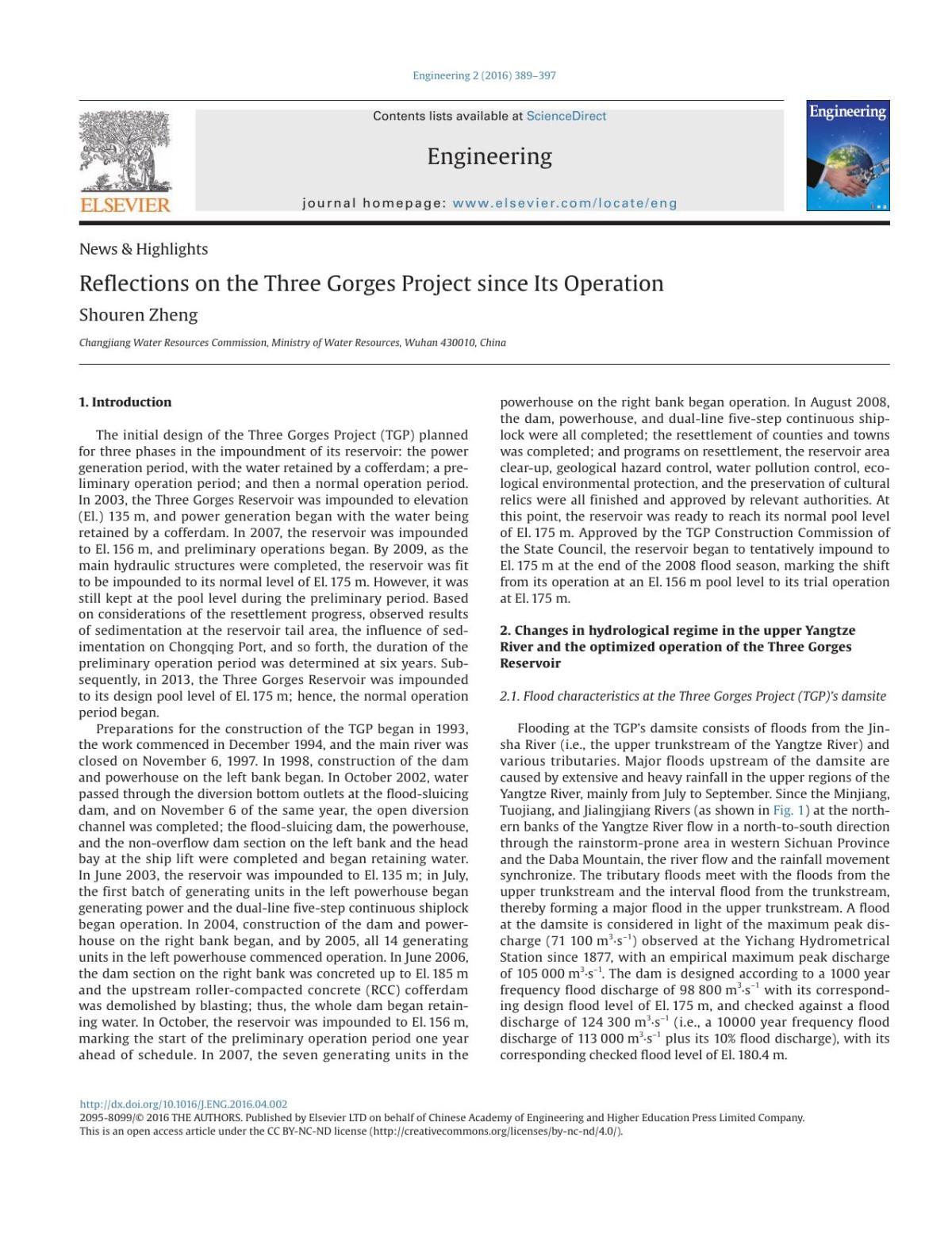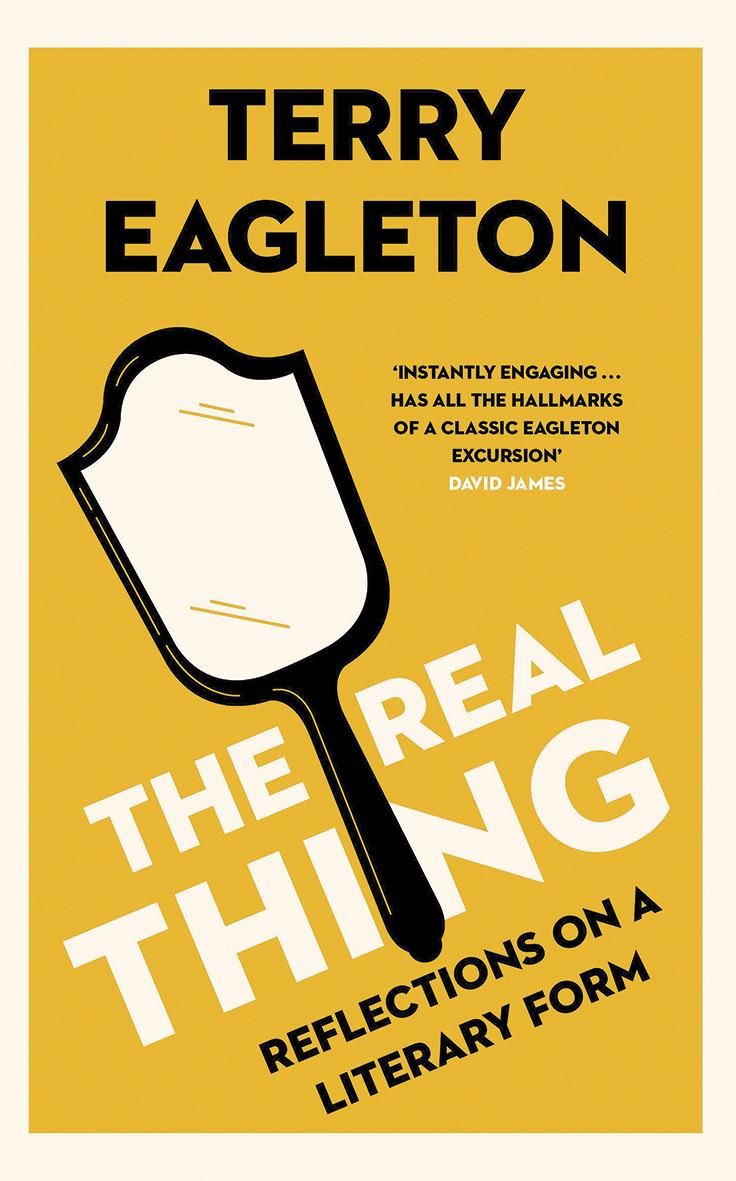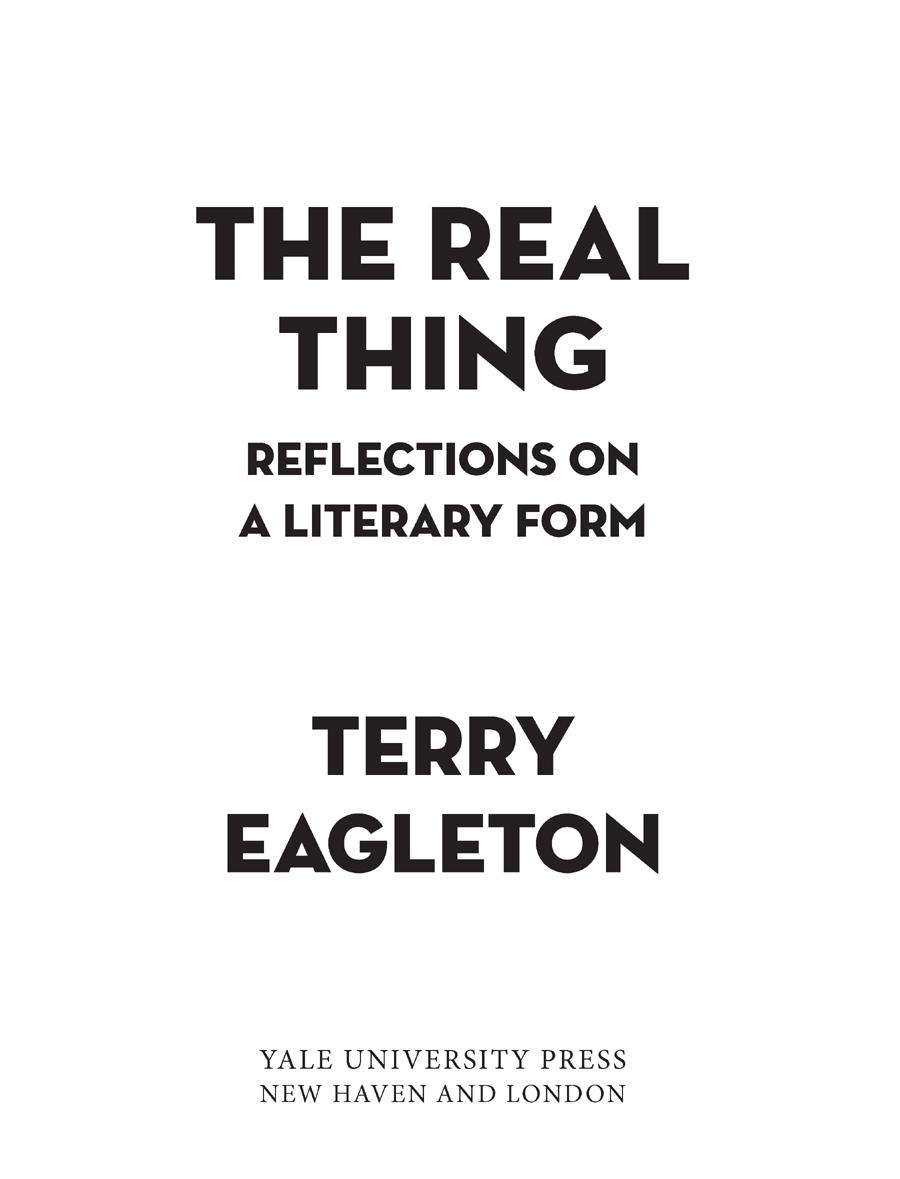1 GETTING REAL
Realism, sympathy and reasonableness
In everyday language, realism means seeing a situation for what it is, without distortion or illusion. The word sometimes carries a hint of resignation: to see things as they are may be to acknowledge that there is nothing much you can do about them. One has therefore, as they say, to be ‘philosophical’ about the situation – an odd use of the term, which effectively equates philosophy with Stoicism and suggests that wisdom consists of bowing one’s knee to the inevitable. Since the inevitable is usually unpleasant, this isn’t the most appealing of attitudes. Realistic types are clear-eyed, hardheaded women and men who acknowledge the limits of possibility and don’t expect too much of the world. They are the opposite of fantasists and idealists, whose demands are exorbitant and unreasonable. The realist is typically preoccupied with the factual or empirical, though there is an irony to be noted here: the current of philosophy we know as empiricism, which held sway over English thought for some centuries, holds that what we know is not real objects but our ideas, impressions or sensations of them. It is thus not realist at all in the sense of the word now common among philosophers. We shall be looking more closely at this question later.
In the course of her novel AdamBede, George Eliot suspends the narrative in order to offer us some reflections on the literary realism which it exemplifies. In a genially patronising tone, she sees it as
involving a wry acceptance of men and women’s inability to change: ‘These fellow-mortals, every one, must be accepted as they are: you can neither straighten their noses, nor brighten their wit, nor rectify their dispositions . . . it is these people . . . that it is needful you should tolerate, pity, and love’. Non-realism idealises its subjectmatter, not least by suggesting that human beings have the power to transform themselves; while realism, in telling it like it is, casts doubt on this capacity. There is a politics implicit in this view. Eliot admires the phlegmatic wisdom of the common people, who pursue their customary ways without any eager expectation that life might change for the better. Yet about a decade before Adam Bede appeared, a large number of the common people of Britain were clamouring so militantly for root-and-branch political reform that their superiors lived in perpetual fear of revolution. Perhaps the idealisation is Eliot’s own.
In this respect, realism is a post-heroic form. Eliot’s finest novel, Middlemarch, ends on a note of muted disenchantment: there can be no Antigones or St Theresas in an age of railways and cotton mills. Still, the ‘unhistoric’ acts of ordinary women and men play a vital role in improving the human condition. Humanity is flawed and imperfect; but by portraying it in all its unloveliness, realist art can persuade us to accept its blemishes rather than bleach them out of sight. In the hands of an Eliot, realism cultivates sympathy and tolerance – though we should keep in mind the very different mentality of Jane Austen, who tartly observes in Persuasionthat the death of one of the novel’s more disreputable characters was a stroke of good fortune for his long-suffering parents.
There are two main ways in which literary realism can foster human sympathy. It can show us how its characters ‘live’ the world from the inside, so that their actions and attitudes come to make more sense. Or it can widen its focus to include the context in which they lead their lives, refusing to treat their actions in isolation and casting light on the reasons why they behave as they do. In both cases, we are prevented from making purely external judgements on individuals and situations. In combining these two perspectives, realist fiction has an edge over both epic and lyric. Epic presents us
with the contexts of actions, but it doesn’t allow us much access to the intricacies of the human mind; while lyric is an expression of feeling without much by way of a social environment. The hope, then, is that if we can re-create how people experience reality, while at the same time viewing their actions in a broader perspective, we are likely to be more tolerant of their foibles or even of their crimes. Facts can be freshly evaluated in the light of feelings, and feelings modified in the light of facts. Something like this is what Aristotle means by ‘equity’ in his account of the law. Equity, he argues, ‘bids us be merciful to the weakness of human nature to think less about what (the lawgiver) said than about what he meant; not to consider the actions of the accused so much as his intentions, nor this or that detail so much as the whole story’.1
If realism grants us access to the inner drama of subjectivity, it can also report on characters and events in a more objective way. It can light up the world from the viewpoint of a single individual, or it can pull the camera back to reveal a more panoramic view of the human landscape. In this way, it can encompass both feeling and fact, subjectivity and social institution. It can also weigh conflicting claims and balance alternative viewpoints, thus qualifying any tooabsolute moral judgement. D.H. Lawrence speaks in Lady Chatterley’s Lover of the novel as managing the flow and recoil of human sympathy, directing it into places where it has gone dead. In all these ways, the realist novel does not simply involve morality; for a line of authors from George Eliot and Henry James to Lawrence and Iris Murdoch, it is the supreme example of it. The novel is the Bible of an increasingly godless age.
The good-hearted doctrine that a deeper understanding of people breeds a deeper tolerance of them is somewhat suspect. It overlooks the fact that to view actions or individuals in context may show them up as even more repellent than we first imagined. Putting things in context does not always make them more acceptable, or even more intelligible. People who are accused of making offensive remarks often claim that what they said has been taken out of context, but what context would justify ‘Drop dead, you
despicable piece of donkey dung’? Unless you are quoting, joshing, practising your English, speaking on stage or illustrating the literary device of alliteration, an appeal to context is unlikely to let you off the hook. If you made this remark to someone who was sheltering you from a crazed gunman, the context would compound the offence rather than mitigate it. Besides, there is a whole range of contexts to any human action, and it isn’t clear who decides which are most relevant. In a similar way, empathising with others may actually deepen our distaste for them. Feeling your way into the mind of a serial killer, or even a serial liar, may make him seem even more abhorrent than you imagined. Empathy is no basis on which to build an ethics. To identify with someone’s plight won’t necessarily inspire you to come to their assistance. In fact, if your self has now disappeared into theirs, there is nothing of you left to do so. Ethics is a matter of social practice, not of sentiment. Besides, to ‘become’ someone else by an act of imaginative sympathy abolishes the distance you need in order to judge them, whereas much realist fiction is a critique of reality, not just a recreation of it.
Realism, resignation and reasonableness would seem to be closely linked. Yet the alliance is surely suspect. There are plenty of situations in which it is realistic to expect an enormous amount. One of the slogans of the student uprising in Paris in 1968, thought up by the critic and novelist Maurice Blanchot, was ‘Be realistic: demand the impossible!’2 It is unrealistic (though not irrational) to expect that we could abolish all hatred and antagonism, but ending the military conflict in Northern Ireland was always a feasible prospect. To tell someone to be reasonable generally means admonishing them to scale down their demands. It usually means something like ‘Cool it!’, ‘Back off!’, ‘Be moderate!’ Yet despite the fact that the Oxford English Dictionary gives ‘moderate’ as a synonym of ‘reasonable’, this is not what the word ‘reason’ would have suggested to the more radical wing of the eighteenth-century Enlightenment. Being rational or reasonable for them might well have entailed decapitating the monarch and abolishing the aristocracy. Reason can be a revolutionary force as well as a call for
compromise. Seeing things as they are involves seeing how they might be different. It is possible for a status quo to be extreme, and for demands to overthrow it to be entirely reasonable. It was the slave trade that was abhorrent and intolerable, not the reformers’ attempts to bring it to an end.
‘Rational’ and ‘realistic’ can sometimes be synonymous. It is both rational and realistic to expect that it will rain in Manchester sometime this century. Yet there can also be a difference between the two, depending on the meaning of ‘rational’. Abolishing gender inequalities is a rational goal, in the sense of being morally compelling; but there are many places around the globe where it is currently unrealistic, in the sense that one would not expect it to happen quickly or easily. It is rational that the actor Charlie Sheen might be appointed abbot of a Benedictine monastery, in the sense that appointing a tomcat or a can of Diet Coke is not. Sheen is male, of sufficient intelligence for the job, capable of abandoning his flamboyant lifestyle if the alternative was being roasted slowly over a fire, and of an Irish Catholic background to which he might inexplicably revert. But it is not a realistic prospect. It is hard to see it happening next week. Realism deals not only with the actual but with the probable, and Abbot Charlie Sheen falls into neither category.
One cannot speak of people, events or situations as realistic. If ‘realistic’ means true to life, it makes no sense to say that a road accident is true to life. Representations of it (photographs, newspaper reports and so on) may be realistic, but things themselves are not. Only false teeth can be lifelike. To commend a portrait as realistic is to imply that it is not the real thing. It is therefore to assert both an identity and a non-identity between it and what it illustrates. In this sense, realism involves a kind of irony. To be impressed by the fidelity of a representation we must call to mind what is being represented, which then serves to remind us that what we are impressed by is only an image.
When we talk of realism in literature, we are usually speaking of a certain style of representation, one which strikes us as credible and lifelike. The eighteenth-century author Clara Reeve writes that
the novel’s highest task ‘is to represent every scene in so easy and natural a manner, and to make them appear so probable, as to deceive us into a persuasion (at least while we are reading) that all is real, until we are affected by the joys or distresses of the persons in the story as if they were our own’.3 On this view, realism works by empathy, a concept which as we have seen already is not immune to criticism. One does not need to feel someone else’s pain in order to feel for them.
Yet how can art be true to life and at the same time be art, which is a matter of shaping and selectivity? Marcel Proust describes art as ‘a faithful recomposing of life’, but how can you recompose things while remaining faithful to how they appear? Or can you evoke their truth more fully by reconfiguring them? In any case, not everything can be represented. Protons are real, but one cannot dash off a sketch of them. A tingling sensation in the spine is more easily represented in print than in paint. For a Christian, the Resurrection was a real event, but no reputable theologian would claim that you could have taken a photograph of it had you been lurking around Jesus’s tomb with your mobile phone at the ready. The Battle of Austerlitz really took place, but there can be no way of representing it which conveys every sword clash and scream of pain. All such realism is an edited version of what it portrays.
Besides, real life is stuffed with surreal or grotesque occurrences, such as awarding the Nobel Peace Prize to a politician (Henry Kissinger) who illegally bombed Cambodia, or the fact that world football has been governed for decades by men who are corrupt to the core. Literary accounts of such scandals might well be dismissed as idle fantasy or blatant sensationalism. It is also true that reality sometimes falls short of what we might reasonably expect of it. It would have been more fitting if Alexander the Great had not been so absurdly short in stature, as some ancient authorities report that he was; but history can be slapdash and negligent, failing to arrange its materials in the most suitable fashion. There are times when its tact, artistic craftsmanship and sense of proportion leave much to be desired, so that art must be called in to compensate for these
defects. We must mix our facts with a leavening of fiction if their true significance is to be revealed. Florence Nightingale lived on into the twentieth century, but it might have been more appropriate had she died of fever while nursing the wounded soldiers of Victorian England. As Carol Shields writes in Larry’s Party, ‘History, it seemed to Larry, left strange details behind, mostly meaningless: odd and foolish gadgets, tools that had become separated from their purpose, whimsical notions, curious turnings, a surprising number of dead ends.’
Who or what sets the parameters of realism? Who gets to draw the line between the feasible, the improbable and the inconceivable? One answer to the question, deeply unfashionable in postmodern circles, is: the world itself. There are many possibilities which are ruled out by our physical constitution and material circumstances. It is unlikely, for example, that any human being will live forever – a fortunate limitation, since immortality would almost certainly be a form of hell. At the same time, what counts as realistic is in part a cultural and historical affair. Living to the age of eighty is a realistic expectation these days, as it was not in Shakespeare’s time. Some societies take a broader view of what is attainable than others. There are Americans who regard possibility as infinite and treat negativity as though it were a thought crime. The self is mere clay in one’s hands – passive, pliable stuff awaiting the imposition of the imperious will. In no other spot on the planet does one hear the exultant cry ‘I can be anything I want!’ as often as in this compulsively upbeat nation, with its curious blend of hard-headed pragmatism and Romantic idealism. In defeatist Britain, by contrast, reminders to feed the hamster are greeted with cries of despair from those appalled by the sheer enormity of the task.
The infantile fantasy of being whatever you want cannot of course be taken literally. You cannot be a chipmunk, a pot of mustard or a thirteenth-century Mongolian sex worker, and only Judi Dench can be Judi Dench. Neither, however, can the fantasy be true in a broader sense. The tone-deaf do not get to be world-class composers; militant Trotskyists do not become President of the World Bank; and those hapless individuals who are pathologically
incapable of either lying or bluffing do not get to be politicians. Desire may be limitless, but achievement is not. As Troilus remarks to Cressida in Shakespeare’s Troilus and Cressida, ‘This is the monstrosity in love, lady, that the will is infinite, and the execution confin’d; that the desire is boundless, and the act a slave to limit’ (Act 3, Sc. 2). To hold that anything is possible is usually to regard restraint as inherently negative, a view which caused the ancient Greeks to shudder and look fearfully to the skies. They were aware that such inflated self-belief would earn its calamitous comeuppance, as it may still do in our own day.
Facts and interpretations
Realism seeks to see things as they actually are, the paradigm case of which is acknowledging that we shall die. But seeing things as they are is a more arduous exercise than it sounds. For Friedrich Nietzsche and his postmodern successors, this is because how things are is no way in particular. Reality presents itself to us in a whole number of different guises, depending on our standpoint and on the frame of interests within which we decipher it. Indeed, what we call facts are for Nietzsche simply interpretations. (Since this seems to be a statement of fact, it must itself be an interpretation, a point Nietzsche readily concedes.) The postmodern philosopher Gianni Vattimo brands this form of thought ‘nihilistic’, since it seems to dissolve the world away, but it is a nihilism he cheerfully endorses.4 Most people think that you can judge whether a statement is valid by checking it against the facts. But if the facts are themselves interpretations, all we would seem to be doing is checking one set of interpretations against another. To borrow a couple of analogies from Ludwig Wittgenstein, it would be like buying yourself a second copy of the daily newspaper in order to confirm that what the first copy says is true, or passing money from one of your hands to the other and thinking you have made a financial transaction. Scientists, along with almost everybody in the local supermarket, tend to appeal to the world itself to decide whether what we say
about it is true. If you want to determine whether ‘Grass is green’ is true, look at an actual patch of the stuff. For Nietzscheans, however, what you see when you look at a patch of grass is itself an interpretation, and a loaded one at that. Our perceptions are informed by bias, habit, interest, desire, assumption, convention and the like. So appealing to something called the world is pointless, since the world comes down to your own partisan version of it. It has nothing to say for itself. It has no opinions on how it is to be represented, and does not intervene in our debates over how best to describe it. Moral thinkers have traditionally argued that values and beliefs should be based on a knowledge of how things are. But if ‘how things are’ is an illusion, we might simply have to choose these things; and this would fit well with the late-capitalist cult of ‘options’. However, if reality has no meaning or value in itself, all choices would seem arbitrary.
They are also equally empty. ‘If value is constituted by our desires, simply, as such’, writes Sabina Lovibond, ‘there can be no objectively valid reason why we should want one thing rather than another; what difference does it make, then, what we choose?’5 It may follow that the only thing of value is not what we choose but the act of choice itself. What matters is not what I choose, but the fact that it is I who choose it. It is a viewpoint common to both existentialism and adolescence. As Charles Taylor writes, ‘all options (in this view) are equally worthy, because they are freely chosen, and it is choice that confers worth’.6 Being a brothel keeper may not be the most virtuous form of life, but at least I opted for it. It is not true, however, that we opt for most of what is central to our lives –whether nuclear war breaks out, how our parents treated us as infants, our genetic make-up, who we fall in love with, our skin colour, our vulnerability to sickness and death, whether we are a psychopath or an easy touch.
Postmodernism is wary of facts, a concern with which it sometimes spurns as ‘positivist’. (This, in fact, is a crude caricature of that brand of philosophy.) Facts sound too fixed and definitive, whereas postmodern thought delights in the fluid and provisional.
They also sound somewhat tedious. This may cause us to hesitate before coming up with such statements as ‘Animals do not like being in pain’ or ‘There are some gay people in China’. (The latter proposition was vigorously denied by my Chinese guide when I first visited the country in the 1980s.) Yet these are facts, just as it is a fact that Darth Vader came from Bristol. The part was played by an immensely tall actor from that city called David Prowse, whose West Country burr was substituted in the final cut.
Is this a ‘brute’ fact, though? Not if this means being immune to evidence and argument, or that it is established by infallible methods, or that it can never be disproved. That there are no ‘brute’ facts, however, is a fact. It does not mean that there are no facts at all, rather as the fact that the world is not run by a conspiracy doesn’t mean that there aren’t conspiracies. There is a delusion that for an account of the world to be true, it needs to be exhaustive, impartial, value-free, exact in every detail, the only valid account of the subject in question and permanently closed to all revision or refutation. The only problem with this is that no such accounts exist. If you assume that this is what truth means, however, you may well end up rejecting the whole concept as unworkable. In this sense, some nihilists are simply disenchanted absolutists. They assume that if the truth is not blazoned in the skies in luminous Gothic script, then there is no such thing. Or if there is such a thing, then, as the sceptic maintains, it is inaccessible to us.
Even if the world consists simply in a set of interpretations, it does not follow that any old interpretation will do. You might read the novels of Jane Austen as insurrectionary tracts urging the violent overthrow of the English gentry, but it is likely that you would feel a fair amount of strain in trying it on. You would sense the works themselves putting up some resistance to this project, and the Nietzscheans find it hard to explain where this resistance comes from (from other people’s interpretations, perhaps). There are times when our claims are confronted by the inconvenient weight of the world’s body, and may therefore need to be rejected or revised. Reality is, among other things, what resists our designs upon it. It is not just clay in our all-powerful hands, any more than the human
body is just stuff to be shrunk, inflated or scrawled upon. The American philosopher C.S. Peirce describes reality as ‘that which insists upon forcing its way to recognition as something other than the mind’s creation’.7 There is an element of coercion about it.
To deny that there are facts suggests that what is on the wane in our time is not just this or that piece of reality (crinolines and mutton-chop sideburns, for example) but nothing less than reality itself, which in an earlier phase of our civilisation was thought be so sturdy and robust. All the same, it is obvious that some versions of reality are more plausible than others, and only an intellectual would be perverse enough to deny it. As Richard Rorty writes, ‘“Relativism” is the view that every belief on a certain topic, or perhaps about any topic, is as good as any other. No one holds this view.’8 Nobody believes that whistling the national anthem is as effective a cure for cancer as surgery. This is merely the fantasy of those who don’t get out enough. In any case, if someone did claim that any viewpoint is as good as any other, they would also be committed to claiming the opposite, since each view would be as valid as the other. Relativism of this kind is a form of inclusivism at the level of the mind. Nobody’s opinion must be left out. We would not wish those who call for the poor to be exterminated to feel excluded. It would be to marginalise them. This is not a view shared by the vast majority of people – a fact that ought to worry relativists, who are continually on guard for symptoms of ‘elitism’. Not all commonsensical views are to be endorsed; but one should be wary of dismissing beliefs held by immense numbers of ordinary people over immemorial stretches of time, beliefs which arise from their day-to-day traffic with the world. Those who reject value judgements as elitist should note that this is not the attitude of most of the population to the performance of rock groups or football teams.
Postmodernists are right that all knowledge is context-bound and historically specific. Any observation is made from within a certain perspective, and is shaped by certain conventional ways of seeing. But this only poses a challenge to the notion of truth if one assumes that seeing things as they are involves seeing them from nowhere. It
does not mean that feminism or medical science are no truer than magic or Scientology. You can compare different versions of reality in order to determine which are more explanatory, as scientists do when they exchange one hypothesis for a more productive one. Critical accounts of WutheringHeightswhich assume that ‘Wuthering Heights’ is the pet name Heathcliff gives to Catherine are unlikely to be as illuminating as those which don’t. Reports on how it is with the world must submit themselves to certain procedures of logic, evidence, coherent argument, rational criteria, testable hypotheses and the like. These are likely to rule in certain propositions and rule out certain others, at least for the moment. Some evidence might emerge in the future to suggest that the Louvre has been in Kuala Lumpur rather than Paris all along, or that John Milton was only pretending to be blind to win himself a spot of sympathy.
This is not to suggest that evidence and argument will lead you infallibly to correct conclusions. Far from it. The history of science is as much the history of its errors as of its discoveries. For one thing, it is possible to disagree on what counts as logical, rational or strongly evidential in particular contexts, in which case we have to talk it over. Sometimes we may reach agreement, sometimes not. As for correct conclusions, scientists might wrangle for centuries over certain questions without ever establishing the truth of the matter. The quarrel between realists and anti-realists, which we shall be glancing at later, may never be resolved. It is just that if truth is what you are after, procedures guided by logic, evidence and experiment are generally more reliable than opening the Bible at random or peering wistfully into your tea cup. It is a sign of the times that one needs to state anything so obvious. It has also become obvious there is a complicity between postmodern thought and a right-wing contempt for fact, truth, science and rationality.
If none of this is of world-shaking importance when it comes to discussing Sense and Sensibility, it matters a lot when it comes to determining whether a certain drug might cause foetal abnormalities. Those who are sceptical of rationality in the former case might not be so eager to discard it in the latter. Not many people are sceptical of truth or reason when it comes to deciding
which of their legs should be amputated. Similarly, those campaigners against anti-Semitism who suspect that disinterestedness is always bogus might still prefer for their case not to come up before a judge wearing a swastika armband.
For postmodernists, truth is a question of how we organise the world in order to satisfy our needs and promote our interests. It is manufactured rather than discovered. It has no foundation in how things are in themselves, since on this view, as we have just noted, there is no such thing. We represent the world in ways which are necessary or convenient for ourselves as a species – ways which help us to master our surroundings and flourish within them. Snails no doubt do the same; but because their bodies are so different from ours, so must their world be. What is true for a snail is unlikely to be true for us, and vice versa. So truth is relative to our practical projects. Whether this claim itself is relative is not easy to decide. The philosopher Hilary Putnam sends up the relativist viewpoint by protesting tongue-in-cheek that ‘relativism isn’t trueforme’.9
In the more flamboyant outreaches of postmodern thought, truth is even seen as relative to the individual. It is not surprising that this case should flourish in rampantly individualist societies like our own, in which the social sense has progressively withered. It is true for me that Outer Mongolia is a suburb of Stratford-upon-Avon, however false it may be for you and the Outer Mongolians. Both claims are to be respected, since it would be dogmatic and hierarchical to label one of them as ‘right’ and the other as ‘wrong’. To call other people’s viewpoints false is to assume an unpleasantly elitist attitude to them. It would also seem to lend our own judgements an unwarranted air of absolute authority. It follows that it is offensive to argue that women have been treated with gross injustice throughout the course of history – not only because it discriminates against those who don’t share this opinion, but because it implies that we can know this with reasonable certainty, and certainties are the trade mark of the closed-minded. Instead, there should be something of a free market in truth. Perhaps truth is simply whatever version of the world has triumphed in the course of time in contention with others,
rather as Microsoft has gobbled up a number of rival enterprises in its day.
Besides, diversity is generally thought to be desirable in itself, so instead of everyone holding in drearily uniform spirit that torturing the innocent is wrong, why not have some people who maintain the opposite and add a little variety to an otherwise rather humdrum existence? Both parties are entitled to their convictions, just as both are entitled to their private property. If no opinion can be backed by compelling evidence, all opinions are on a level. A good deal of dispute can thereby be avoided, which makes for an easier life for those who govern us. As Simon Blackburn remarks, ‘Relativism . . . chips away at our right to disapprove of what anybody says.’10 It is a way of defusing conflict while at the same time avoiding consensus. Yet consensus of some kind is unavoidable even for disagreement. To be able to differ, we must share some conception of what we are differing over. We are not disputing if I think we are talking about quarks and you think we are discussing Queen Nefertiti.
We determine what is true or false in language, and language is nobody’s private property. I may discover some earth-shaking truth – say, that Thomas Hardy never clapped eyes on a cow – which is known only to me; but since I can formulate it to myself, it must be in principle communicable to others. Unlike the railways and the water supply, truth cannot be privatised. It is a dialogical affair, involving an appeal to certain shared criteria. In this sense, it is rather like finding out how tall someone is. In his Philosophical Investigations, Wittgenstein invites us to imagine someone who exclaims, ‘But I know how tall I am!’ and places his hand on top of his head. He fails to grasp the fact that height is measured by a common standard. Instead, he is as tall as he is tall. The expression ‘it’s true for me’ is just as empty.
Relativism may also apply to whole groups of people. There are, for example, certain marginal cultures with a distinctive identity of their own, whose values and customs may diverge from ours. They may see the world in ways we ourselves can scarcely imagine; yet they have their own cherished customs and beliefs, which are surely
to be respected. One of these groups is known as bankers. At first sight, some of their behaviour (fraud, greed, corruption, barefaced deception and so on) may appear unscrupulous, but who are we to pass such superior judgements on them? From what Olympian standpoint do we decide that reducing large numbers of people to financial ruin is ‘immoral’? Bankers are simply individuals who do things differently from the rest of us. If we believe in celebrating a variety of lifestyles, we should surely welcome this fact rather than whine about it. Do we really want a timorously conformist world in which everyone refrains from bankrupting large numbers of other people? Surely diversity is a value in itself. Those who think so should take a look at John Stuart Mill’s essay On Liberty, which laments the fact that social classes are being levelled on the grounds that difference is thereby being erased. There can be a reactionary pluralism as well as a radical one.
If every culture has different standards of truth, how can they ever communicate, let alone engage in mutual criticism? A Javanese may take Western imperialism to task, but why should this lose us any sleep if we do not share his or her cultural assumptions? As the philosopher Kwame Anthony Appiah argues, this viewpoint ‘requires us to define hermetically sealed worlds, closed off from one another, within which everyone is trapped into a moral consensus, inaccessible to argument from outside’.11 As a cosmopolitan-minded Ghanaian teaching in the United States, Appiah speaks with a certain authority on the question. All cultures may be valid if one is thinking of nations or ethnic communities, but not if one is thinking of paedophiles or the US gun lobby. Inclusivity is not always a virtue. One should not make a fetish of difference, any more than one should of unity. Some postmodernists are reluctant to acknowledge that other cultures may be in some respects quite like our own because it sounds like a rationale for assimilating them to Western norms. It is, in short, a generous error, like assuming that bank robbers are simply trying to grab in the form of bank notes the love that their parents denied them. Yet all it may do is foist on other people yet another Western conception, this time known as
relativism. Generally speaking, human beings have a lot more in common than it is currently fashionable to concede. I may believe that the gods require the sacrifice of thirty bullocks a day, while you may be a card-carrying agnostic, but this does not prevent us from cooperating to save someone from drowning.
As Malcolm Bull remarks, ‘the available evidence strongly suggests that there are some linguistic, perceptual, expressive and social characteristics common to all societies, and many others which have developed independently in a wide variety of contexts and are absent only in a handful’.12 The Nuer or Azande may look at the world differently from Texans and Liverpudlians, but many of the features of reality these tribal people pick out – nightfall, hunger, armpits, laughter, disease – are familiar in Texas and Liverpool as well. Nor must those aspects of their world which deviate from our own be impenetrable to us, unless a great many anthropologists have been lying through their teeth. If we can identify these values and practices in the first place, they can hardly be complete enigmas. Whatever we can know cannot be entirely alien. The true aliens are those who are sitting in our laps right now. In a celebrated essay, the philosopher Donald Davidson rejects the idea that different cultures can have conceptual schemes which are incommensurable with each other.13
To deny that we have a world in common at a time when the planet is teetering on the brink of collapse seems peculiarly perverse. If anything has unified the human species, it is climate change and weapons of mass destruction, along with global capitalism. With the invention of nuclear weapons, it became possible for the first time in history for the human species to be annihilated as a whole. Everyone has at least that in common, along with McDonalds and the possibility of seeing their prized possessions swept away by floods.
Why does any of this matter? There is no reason why the concept of truth should be a practical problem for the prosperous middle classes, which is no doubt why some theorists are so cavalier about it. There are others less fortunate, however, who need to
know the truth of their condition in order to be free of it. Those who seek political emancipation are likely to require some reliable knowledge in order to do so. They are unlikely to be enthused by the news that their situation is in no way particular, or that the claim that they are being humiliated and ill-treated is simply one version of reality among a host of others. Margarita Simonyan, director of the Kremlin’s television channel, has declared that all we have in the way of truth is a host of conflicting narratives. So the charge that Vladimir Putin habitually has his political opponents flung out of sixstorey windows is neither more or less plausible than the claim that he is secretly working for the CIA. Any theory of knowledge which does not allow us to state with reasonable certainty that there are gross inequalities of income in the world, or that many thousands of Africans were once taken into slavery, must be treated with deep suspicion. There are thinkers today who insist that women have been burdened and despised throughout history, yet who drape words like ‘fact’, ‘truth’ and ‘objectivity’ in scare quotes. In pulling the rug out from under their opponents’ notions of truth and objectivity, these authors seem not to notice that they have also pulled it out from under their own.
Cognitive and moral realism
The claim that the world is independent of our thought about it, but that we can have accurate knowledge of it all the same, is known as cognitive realism.14 The American philosopher Thomas Nagel believes that this form of realism is true, but that it can’t be proved.15 A militant version of the doctrine is proposed by Christopher Norris, for whom the universe and all its furniture . . . must be thought not only to exist but also to exert its various powers, properties, causal dispositions etc., irrespective of our various statements and beliefs concerning it. Those statements and beliefs are true(objectively so) just to the extent that they pick out real-
world objects, processes, or events and just on condition that they predicate the right sort of property.16
We shall see in the next chapter the bearing of this argument on literary realism.
To be a cognitive realist is not necessarily to sign on for some fiction of absolute truth. Nor is it to capitulate to a belief in raw facts, or to the myth that our perceptions are free of prejudice. Neither need we assume that the world is only one specific way at any given time, or that the only valid view of it is the view from nowhere. Even so, realists believe that the way the world is doesn’t come down to our descriptions of it. In their opinion, it is how things stand in reality which determines whether those descriptions are true or false. Truth on this theory is discovered, not constructed, which is not to deny that the mind plays an active role in the process. Reality is not mind-dependent; but what we make of it, how we identify, describe and organise it, which pieces of it strike us as significant and which do not, how we put it to practical use: all of this involves our needs, interests and values, which of course vary from time to time and place to place. As the philosopher Paul O’Grady remarks, ‘there is a way things are, but there are multiple ways of theorising about it, or describing it’.17 Our forms of description are constrained by the way things are. We are not free to ‘construct’ reality in any way we like. In any case, what is it that we would be constructing? The verb ‘constructing’ suggests that there is something out there to be fabricated.
Simon Blackburn argues that if our thought did not sometimes reflect bits of the world more or less satisfactorily, the many successes of science would have to be ascribed to a miracle.18 This is not an argument likely to cut much ice with postmodernists who, like many students of the humanities, tend to be sceptical of science. Ironically, they take the same dim view of it as the old-fashioned humanists they scorn. Yet science in the early modern period could be a radical, iconoclastic enterprise, which is how much postmodern thought would like to see itself as well.19
Realism of this kind is a theory of knowledge, but there is a moral version of it as well. This holds that moral qualities are features of the world. Moral judgements are not just ways of registering one’s subjective attitude to what people do. They are not neutral descriptions of a situation (‘She made off with his money half an hour after the wedding ceremony’) plus an approving or disapproving judgement (‘Excellent thing to do!’). On this theory, known as emotivism, ethics is just a more sophisticated form of cheering or booing. Nor for the realist are moral judgements to be seen as neutral descriptions with a prescription tied to their tail (‘Don’t do this sort of thing!’), as in so-called prescriptivism.20 To call an action ‘fraud’ is not just to reproach its perpetrator. Nor is it simply a shorthand way of urging people not to do it. It is rather a statement which is descriptive and evaluative at the same time, such as ‘This is murder’. As Roger Scruton puts it, ‘the description has the force of a condemnation’.21 Even when this is not the case – when we are either simply stating facts or simply making value judgements – the two activities remain closely related. Stephen Mulhall remarks that ‘it is not that statements of fact arejudgements of value, but rather that both fact-stating and value-judging presuppose the same capacities of human nature – that only a creature that can judge of value can state a fact’.22
On this theory, moral qualities are features of a situation in much the same way that something can be puce or oblong. There are moral facts just as there are material ones. There is such a thing as moral knowledge, a claim which non-realism is out to deny. For the non-realist, there is no such thing as objective moral truth, from which it follows in Lovibond’s words that ‘no one can tell you that you are mistaken in your moral (or other) values’.23 It would be like telling them that they were mistaken in their liking for Mars bars. Morality for some non-realists is a matter of taste, opinion, tradition or community norms. Some people are white supremacists while others are not, rather as some people prefer Raphael to Rembrandt. For the moral realist, however, there is only one standard of valid assertion, which is truth; and this applies to both moral and factual
claims. ‘Moral and evaluative statements,’ writes Alasdair MacIntyre, ‘can be called true or false in precisely the way that all other factual statements can be so called.’24 Like descriptions of reality, moral claims are made according to certain shared procedures, which means that they can in principle be rationally justified. Moral reasoning can thus claim parity with scientific reasoning in the sense that it, too, is answerable to public criteria of evidence.
Being rationally justified does not necessarily mean being right. An argument based on evidence which seems rock-solid at the time may turn out to be groundless. It was rational in 1067 to believe that the sun circled the earth. Moral realism does not mean that we are never in doubt about whether an action is right or wrong –simply that when we make such judgements, it is a question of fact which is at stake. We might argue over whether a certain act is murder, manslaughter or self-defence, and never reach a definitive conclusion; but we cannot claim that kidnapping a small child and imprisoning it for years in solitude in a cramped space is wrong for me but not for the Princess of Wales, or wrong among the Californians but right among the Azande.
At the root of all virtuous action lies an attempt to see the situation as it really is. In this sense, ethics and epistemology are finally at one. The classical moral question is not ‘What should I do?’ but ‘What should I do, given the situation?’ The facts of the situation may be hard, even impossible, to establish, which is one reason why ethical argument is potentially endless. But this is how the moral question has been framed by a lineage of moralists from Plato to Hegel. It is true that not all thinkers sign on for this case. Perhaps the greatest of modern philosophers, Immanuel Kant, insists that the realm of facts is one thing and the sphere of values is another. We should obey the moral law for its own sake. We should be moral because it is moral to be so.
For the moral realist, however, to act appropriately requires some knowledge of how things are with us. Acquiring this insight may itself require various moral virtues: honesty and tenacity, a capacity for self-criticism, an effort to view the world without self-interest or
self-delusion, a refusal to foist our own private fantasies upon it and so on. In fact, truth itself was originally a moral concept. The word is related to ‘troth’, which means faith or loyalty. We try to be faithful to the way things are, rather as we pledge our fidelity to someone else. We may also need a degree of intellectual courage in order to confront the ugly and inconvenient, as well as an acceptance of the recalcitrance of things and an openness to their reality. All this is what is meant by objectivity. It is the opposite of self-centredness. Realism of this kind is a moral labour, not a spontaneous impulse. One might claim that it comes a lot less naturally to us than illusion. One advocate of such selfless objectivity is Goethe, not least in his ItalianJourney. In fact, he is one of the founders of modern literary realism.
So objectivity is not always a bloodless, clinical affair, and disinterestedness is not invariably a cloak for self-interest. On the contrary, they may demand unusual reserves of courage, truthfulness and conscientiousness in their attempts to excavate the truth. One can have a passion for objectivity, as with those investigative journalists in search of foolproof evidence to expose some atrocity. Friedrich Engels admires the way in which Honoré de Balzac, despite his personal sympathies for the French nobility, never ceases to satirise them in his fiction.25 Against his own inclinations, his artistic integrity compels him to confront them in all their distasteful actuality. Realism, as the narrator of Middlemarch observes, represents a ‘sturdy, neutral delight’ in things as they are, a comment which blends emotional engagement with intellectual impartiality.
Knowing what is good, remarks Iris Murdoch, demands ‘a refined and honest perception of what is really the case, a patient and just discernment and exploration of what confronts one’.26 Goodness, in a word, involves realism; and realism in turn requires a disciplined selflessness which is not far from love. In the end, Murdoch writes, it is only ‘to the patient eye of love’ that reality reveals itself.27 Art, she believes, is exemplary of this condition, in which true knowledge and moral value are hard to distinguish. Otherwise we remain mired in
the self-serving fantasies which are the ego’s natural condition. On this view, most everyday consciousness is false consciousness. ‘All is vanity’, Murdoch comments, a touch melodramatically. ‘The only thing which is of real importance is the ability to see it all clearly and respond to it justly which is inseparable from virtue.’28 Her own attempt to do so took the form of writing fiction. Those who can transcend the ego through a self-oblivious attention to reality can acknowledge things and persons for what they are, and this in itself is a moral act. ‘The realism of a great artist,’ Murdoch contests, ‘is not a photographic realism, it is essentially both pity and justice.’29
To which one might add: humility.
There is another sense in which realism may have moral implications. Because it is the literary form most intimate with everyday life, it has the potential to influence that life more decisively than most other literary modes. Emile Zola viewed his work as a novelist as nothing less than the transformation of society, comparing it to that of a surgeon cutting out infections from the social body. The socially reformist zeal of Charles Dickens is legendary. Other Victorian novelists – Charles Kingsley and Elizabeth Gaskell, for example – saw it as part of their task to bring the underworld of the industrial proletariat to the attention of the respectable middle classes, in the generous-hearted misconception that class antagonism was largely the upshot of misunderstanding. For the Marxist critic György Lukács, whose views on realism we shall be considering later, realism is ‘not a substitute for political action; it is the structure of consciousness that accompanies it’.30
Finally, it is worth noting that literary realists do not have to be moral or epistemological realists as well. You can insist that the world is independent of our descriptions of it while producing an art of pure fantasy. Or you can claim that it is we who determine the socalled nature of things while coming up with some powerfully realist fiction. An author may regard moral values as subjective value judgements, or see them as no more than exhortations to virtue, yet write with impressive moral depth and intricacy. Realism is a family
of concepts, and like many a family they do not always see eye to eye.
